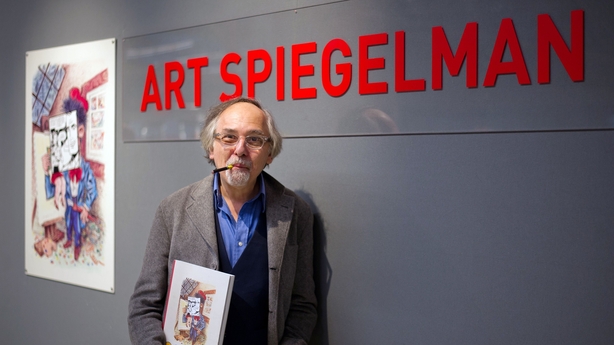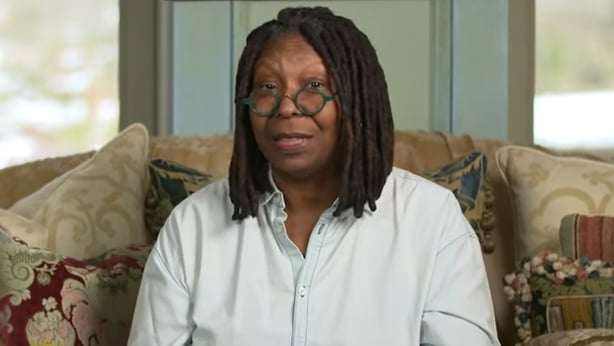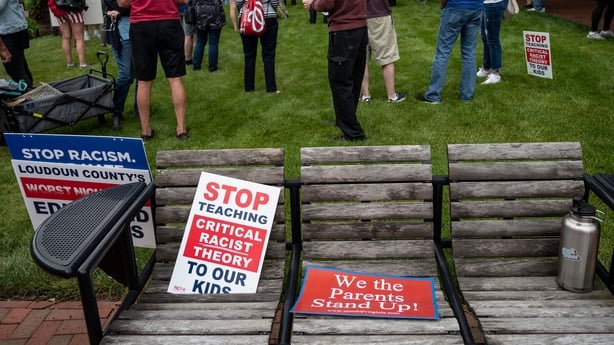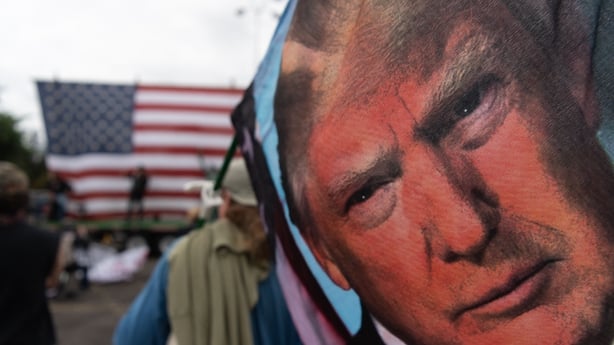Sales of the graphic novel Maus have soared after a school board in Tennessee voted to remove the Holocaust-themed book from its eighth-grade curriculum, citing profanity and nudity.
Eighth graders are usually 13-14 years old, or equivalent to 2nd years in an Irish secondary school. After Maus reached number one on Amazon's bestseller list in the US in January, two versions of Maus are on the Amazon Top 10 bestsellers’ list in the first week of February.
Prior to the decision to ban the book, none of the editions were in the top 1000 on Amazon’s US bestseller list.
Maus, which is based on the Holocaust experiences of author Art Spiegelman’s parents in Poland - including his father’s detention in Auschwitz - depicts Jewish characters as mice, and Nazis as cats. It was the first graphic novel to be awarded a Pulitzer Prize in 1992.
In a unanimous decision by the 10 members of the McMinn County Board of Education in Athens, Tennessee - about 240km south of Nashville - the board decided to override a state-level curriculum review that had approved the teaching of Maus.
The decision was taken on 10 January, but gained national, then international attention at the end of January, ironically coinciding with International Holocaust Remembrance Day.
Reacting to the news, the US Holocaust Museum hailed Maus on Twitter for playing "a vital role" in Holocaust education, through "sharing detailed and personal experiences of victims and survivors."
In a statement, the school board said: "The McMinn County Board of Education voted to remove the graphic novel Maus from McMinn County Schools because of its unnecessary use of profanity and nudity and its depiction of violence and suicide.’
"Taken as a whole, the Board felt this work was simply too adult-oriented for use in our schools."
It went on to say that the Board did not "dispute the importance of teaching our children the historical and moral lessons and realities of the Holocaust."
Specifically, the school board objected to the use of the expression "God damn" and the very small illustration of a breast, which is hard to make out, and in the context of suicide.

Art Spiegelman explained that the only nudity in the book is a single, small illustration depicting his mother as she was found after taking her own life by "having slashed her wrists in the bathtub" about two decades after the war.
"It's a tiny image," he said.
Author baffled by ban
Founder of The Tennessee Holler, Justin Kanew, broke the news, and said he has never seen a story blow up so quickly.
The journalist studied Maus in high school, and his grandparents were Holocaust survivors, so he was familiar with the story and the subject matter, and he was surprised that the school board chose to ban the graphic novel.
"When I read the minutes of the meeting, and their justification for [the ban] was a focus on, you know, profanity, nudity...That part didn't really surprise me, but you can't really separate it from the overall culture of book banning going on," he said.
Speaking to CNN following the ban, Mr Spiegelman called the decision "daffily myopic" and said he was baffled by the ban.
Mr Spiegelman said the McMinn board meeting transcript gave no "hint" of anti-Semitic motivations, but he added: "the problem, of course, is that it has the breath of autocracy and fascism about it."
As well as the ban causing sales of the book to soar, booksellers have been giving away copies of Maus.
Comic book store Nirvana Comics in Knoxville, Tennessee is offering the book to people of all ages for free at its store.
This comes after the owners set up a GoFundMe to buy copies to give away.
Richard Davis, the co-owner of Nirvana Comics books said that it is a small thing we can do to raise awareness and educate people.
"People need to be educated."
Commentary with consequences

While these are some small upsides to the banning of the book, the ban itself has attracted a vast amount of commentary, and not without consequences.
Most readers will have heard that Whoopi Goldberg recently apologised for saying that the Holocaust was not about race.
Ms Goldberg was discussing the banning of Maus during a segment on popular US daytime show, The View.
"This is white people doing it to white people, so y'all going to fight amongst yourselves," Ms Goldberg said at one point.
The actress has now been suspended from the programme.
"Effective immediately, I am suspending Whoopi Goldberg for two weeks for her wrong and hurtful comments," Kim Godwin, president of ABC News, said in a statement the network posted on Twitter.
"While Whoopi has apologised, I've asked her to take time and reflect and learn about the impact of her comments," Ms Godwin said.
"The entire ABC News organisation stands in solidarity with our Jewish colleagues, friends, family and communities."
"I think of it as a harbinger of things to come"
In his interview with CNN, Art Spiegelman said of the banning of his book, "I think of it as a harbinger of things to come."
In other interviews, the 73-year-old said he viewed the decision of the board as part of a broader debate over issues including critical race theory.
"This is not about left versus right," he told The Tennessean newspaper.
"This is about a culture war that's gotten totally out of control."
In recent years, school leaders, politicians and parents in politically-conservative areas of the US have been pushing for more control of subjects taught in public schools.
And the ban comes as Republican politicians around the US have seized on the teaching of "critical race theory" as anathema to public education.
The once-obscure academic concept has become a fixture in the fierce US debate over how to teach children about the country's history and race relations – with critics denouncing school curricula and policies they consider too liberal.
Put simply, critical race theory (CRT), a term coined over 40 years ago, rests on the premise that racial bias is embedded into US laws and institutions.
This would mean that the education system - but also healthcare, housing and the criminal justice system - lead to poorer outcomes for black people.
For example, Black Americans are incarcerated at much higher rates than any other racial group, and the theory invites scrutiny of the criminal justice system's role in that.
Offence to CRT
Some people, often white, and typically Republican, take offence at CRT, believing it suggests that because so many systems in America are racist, Americans are racist.
However, the proponents of CRT point out that it is not trying to make white people today accountable for the actions of white people in the past, rather suggesting that they should acknowledge how they have benefited from the system and try to challenge it.
Bearing in mind that CRT is generally not taught below third level, critics of the doctrine use the term as short hand for any teaching or discussion of race and social issues.

At least eight Republican-led states have passed legislation restricting how the concept of race can be taught.
Last May, the State of Tennessee - where McMinn County is located - banned the teaching of critical race theory and related topics, as well as LGBTQ+ issues.
The law on the teaching of sexual orientation and gender issues would require schools to inform parents of the curriculum and allow their children to opt out of the subjects.
During his presidency, Donald Trump was active in challenging CRT, calling it "toxic propaganda".
He signed an executive order banning any diversity and inclusion training interpreted as containing "Divisive Concepts," "Race or Sex Stereotyping," and "Race or Sex Scapegoating" from Federal contracts. Among the content considered "divisive" was Critical Race Theory.
And just last month, Mr Trump told a rally in Texas: "we will ban critical race theory in our classrooms. We will ban it in our military. We will ban it from our workplaces, and we will ban it from our federal, state and local governments."

"And I did that. But the soon as he came in, he unbanned it. It was totally banned. It was ended and then he came in and they did an executive order and they unbanned it. I'll do that first day, first hour if I decide to run and if we win."
Trump country
McMinn county, where Maus was banned, is Trump country, with 80% of the electorate voting for President Trump in 2020.
As alluded to by Justin Kanew, book-banning is not new in the US, indeed it has become more prevalent, particularly in the past year. Indeed, Senate Majority Leader Chuck Schumer said just this week that the practise was "truly Orwellian".
He went on to say that "Far right extremists at the local and state level are engaging in efforts to ban hundreds of book titles from the shelves of schools and public libraries."
Mr Kanew says just this week, there was a book-burning in Mount Juliet, Tennessee by a local pastor called Greg Locke.
"You know, there's a short leap from censorship to book burning, and we've seen it a lot here in Tennessee," Mr Kanew said.
"I'm in a county where there's a pretty strong presence of [campaigning group] Moms for Liberty...who have gotten a book banned - Walk Two Moons - from the curriculum, and they're again trying to get a book about Martin Luther King and Ruby Bridges ... banned by the State so you know, it's a constant drumbeat.
"It's not going to stop anytime soon. It's a very slippery slope and, at the end of the day, it's the kids that get hurt by this."
Asked about whether school boards were becoming increasingly politicised, Justin Kanew says it has been happening for some years, and he puts the blame firmly on Republicans.
"There's a lot of different ways that they attack public schools. [One way] is this book banning, the censorship, making a big issue out of the masks and the vaccines, telling teachers what they can't teach and threatening to fine schools, basically making it really difficult to be a teacher here," he said.
"It's all part of the same thing, which is making it really uncomfortable for public schools and making parents want to take their kids out of public schools.
"It's all part of a war on our public school system, which is already underfunded as it is.
"The school boards have become sort of the battleground for the culture war and it's really sad because again, it's the kids that suffer."
Mr Kanew believes Democrats have been "asleep at the wheel" as school boards become more and more politicised.
He says it is set to become even more fraught in Tennessee, where his children attend public school.
"They just passed a law to make school board races partisan. They weren't partisan before and just this past session they made them partisan. So now you have to run as a Republican or a Democrat [for the] school board," he said.
"I do believe that this is coming from Republicans and it's a part of their way of clinging to power in a country where the demographics [are] changing, not in their favour.
"What they're trying to entrench is minority rule here. A way for fewer people in this country to preserve most of the power, and we're drifting further and further from a democracy as a result."







